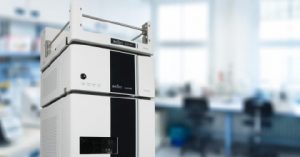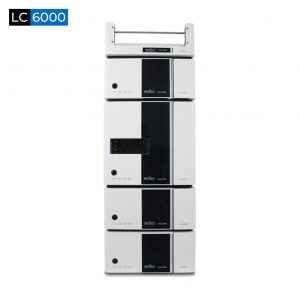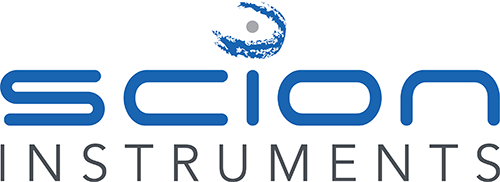High Performance Liquid Chromatography
What is HPLC?
High Performance Liquid Chromatography (HPLC) is an analytical method which separates compounds within chemical mixtures. This technique operates through two essential phases: the mobile and stationary phases.

The HPLC process:
- Initially, the sample is dissolved in a liquid that usually has similar properties to the starting mobile phase. This sample solution is then introduced into the system through either a manual injector or an autosampler.
- The sample then travels through the system under pressure generated by a pump, moving towards the column where the stationary phase resides. Here, the compounds within the sample undergo separation. Owing to differing interactions with the mobile and stationary phases, various components with different chemical structures and composition within the sample exhibit distinct travel speeds through the column. This phenomenon leads to their separation, with each component possessing a specific retention time—the duration it takes for the compound to emerge from the column. Different chromatographic stationary phases are designed to separate components based on particular characteristics such as their hydrophobicity. By changing the chromatographic column and mobile phase compositions the order of components and the speed at which components emerge from the column can be altered.
- After exiting the column, these components are carried towards a detector. The detector identifies and/or measures specific properties of the compounds in the sample.
HPLC Applications

HPLC’s versatility positions it as a widely used and powerful chromatographic technique with applications across various industries, including:
- Pharmaceutical Development:
- Renowned for its reliability and precision, HPLC serves as an invaluable means to verify pharmaceutical product purity.
- Medical Research and Diagnosis:
- In medical research, HPLC plays a pivotal role in analyzing biological samples from individuals with diagnosed medical conditions. By pinpointing specific metabolites in these patients, researchers can use them as biomarkers, to aid in early diagnosis for future patients.
- Drug Testing:
- HPLC finds extensive use in various police investigations, particularly in detecting traces of drugs in urine samples. Frequently combined with mass spectrometry, this technique enables the identification of doping agents, metabolites, conjugates, in a wide array of drugs. HPLC provides crucial legal evidence which can help influence police charges.
- Food Production:
- Within agriculture and food production, HPLC is used to test for pesticides, preservatives, artificial flavourings, colorants, and more. By doing so, HPLC ensures the elimination of chemical residues from food products, protecting consumer health and well-being.
Advantages of HPLC
- Samples can be of volatile or non-volatile in nature
- Superior resolution and rapid analysis capabilities
- Extensive surface area for enhanced performance
- High pressure gradient for efficient separation
- Precise flow rate control
- Exceptional sensitivity with low detection limits
- Minimal sample requirement for analyses
- Versatility across compound sizes
- Automation, facilitating high-throughput analyses and mitigating human errors.
HPLC Equipment from SCION
SCION HPLC, the LC 6000, provides researchers and labs with high precision and accuracy for their separation and analysis needs.

The SCION HPLC series aims for confidence in results through outstanding lifetime performance. A robust design maximises uptime and productivity levels whilst minimising cost of operation.
To find out more about our HPLC chromatograph, visit the product page.
Get In Touch
In conclusion, HPLC, an essential analytical method across industries, empowers researchers to drive innovations in pharmaceuticals, biotechnology, environmental analysis, and food safety.
Contact us today to get your HPLC solution.
